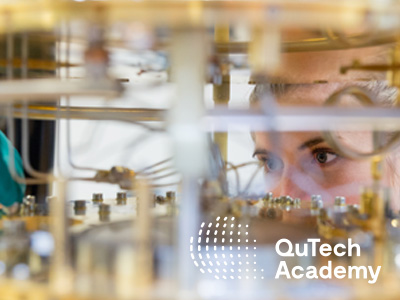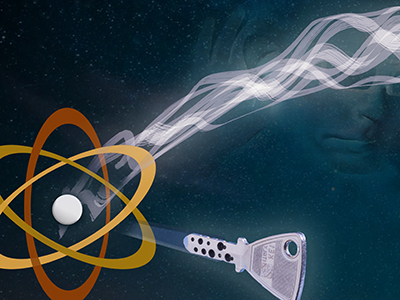Overview
Learn how a quantum computer could be physically build, and how it could be controlled.
There is no doubt that the quantum computer and the quantum internet have many profound applications, they may change the way we think about information, and they could completely change our daily life. The aim of this course is to help you get up to speed with current progress in the transition to a quantum information era. After an initial review of some of the basic concepts and operating principles of quantum computing and quantum information (e.g. the ket notation and quantum bits, the qubits), the course will feature an extensive discussion on some of the different ways qubits can be built. Then, we will discuss the four types of qubits that QuTech focuses on: topological qubits, spin qubits, superconducting qubits and NV center qubits.
The course is a journey of discovery, so we encourage you to bring your own experiences, insights and thoughts via the forum!
This course is authored by experts from the QuTech research center at Delft University of Technology. In the center, scientists and engineers work together to enhance research and development in quantum technology. QuTech Academy's aim is to inspire, share and disseminate knowledge about the latest developments in quantum technology.
What you'll learn
- An overview of the building blocks of a quantum computer;
- How four of the most promising types of solid-state qubits work: superconducting Transmon qubits, Silicon spin qubits, diamond NV center qubits, and topological qubits;
- How quantum gates, the basic operations of quantum computing, are performed on each of these qubit implementations.
Details
License
Unless otherwise specified, the Course Materials of this course are Copyright Delft University of Technology and are licensed under a Creative Commons Attribution-NonCommercial-ShareAlike 4.0 International License.
Qualifications
Chartered Engineering Competences
All our online courses and programs have been matched to the competences determined by KIVI’s Competence Structure, a common frame of reference for everyone, across all disciplines, levels and roles.
These competences apply to this course:
- A1: Extend your theoretical knowledge of new and advancing technologies.
Admission
This is a Massive Open Online Course (MOOC) that runs on edX.
Prerequisites
You should have a background in or deep interest in technology and familiarity with math. You should be able to read and understand popular written scientific contents, such as articles in New Scientist. If you are not yet familiar with quantum technology, enrol in our introductory course The Quantum Internet and Quantum Computers: How Will They Change the World?


